Sports
Fenerbahçe beat BJK to bag 12th league gold, sweep season treble
Fenerbahçe Beko sealed a dominant season with a championship flourish, overpowering Beşiktaş Fibabanka 84-68 in Game 5 of the Türkiye Sigorta Basketball Süper Lig Finals to win the series 4-1 and lift their 12th league title.
The sold-out Ülker Sports and Event Hall erupted as the yellow-navy juggernaut completed a season sweep – EuroLeague, Turkish Cup, and now, the domestic crown.
Night of dominance
After falling behind 13-0 early, Fenerbahçe responded with poise and purpose.
A late three by Nicolo Melli gave them a 21-18 edge to close the first quarter. From there, they never looked back.
With Errick McCollum leading the charge and Nigel Hayes-Davis stretching the margin, Fenerbahçe widened the gap to double digits by halftime (48-40).
In the third quarter, MVP Khem Birch flexed his strength inside, sparking a 7-2 run that forced Beşiktaş into timeout.
Marko Guduric’s poise, Melih Mahmutoğlu’s leadership, and relentless team defense crushed Beşiktaş’s comeback hopes.
By the final buzzer, the scoreboard and the celebration were all yellow and navy.
Unity and farewell
Following the win, silver medals were handed to Beşiktaş captain Yiğit Arslan by TBF Vice President Harun Erdenay.
Then, Youth and Sports Minister Osman Aşkın Bak and TBF President Hidayet Türkoğlu presented the championship trophy to Fenerbahçe’s long-time captain Melih Mahmutoğlu.
In a touching gesture, Mahmutoğlu called up teammate Marko Guduric, and the two raised the trophy together – a moment that ignited jubilant chants in the arena.
Fenerbahçe used the post-game stage to honor two key figures marking their exits: Serbian guard Marko Guduric, who had two memorable stints at the club, and Italian executive Maurizio Gherardini, a behind-the-scenes architect of Fener’s golden era since 2014.
Guduric, emotional with his wife and children by his side, saluted fans as they returned the favor with thunderous ovations. “We made history,” he said. “This will always be home.”
Fenerbahçe President Ali Koç and Beşiktaş President Serdal Adalı shared the sidelines, reflecting mutual respect between two storied clubs on Turkish basketball’s biggest stage.
Sports
Barca end preseason in style as Ter Stegen reinstalled as captain
Barcelona sealed their preseason preparations with a commanding 5-0 victory over Italian side Como on Sunday at the Johan Cruyff Stadium, showcasing fluid play under coach Hansi Flick while signaling a resolution to the recent captaincy dispute involving goalkeeper Marc-Andre Ter Stegen.
The reigning Spanish champions, training away from the still-under-renovation Camp Nou, looked confident and cohesive ahead of their La Liga title defense kickoff against Mallorca this Saturday.
Goals from Brazilian winger Raphinha, Fermin Lopez (two), and teenage sensation Lamine Yamal (two) cemented the rout in the Joan Gamper Trophy match.
England international Marcus Rashford, who joined on loan from Manchester United just two weeks prior, featured in the opening lineup for the first time since moving to Catalonia.
Rashford contributed the assist for Raphinha’s goal but also missed a golden opportunity to score into an open net.
More significant than the scoreline was Ter Stegen’s return to the captain’s role, ending weeks of tension stemming from his back surgery and disagreements over the timing of his recovery.
The 33-year-old German goalkeeper had been stripped of captaincy on Thursday after the club questioned discrepancies in his medical report — a key document needed to clear salary-cap space and allow Barcelona to register new signings without breaching La Liga’s financial fair play rules.
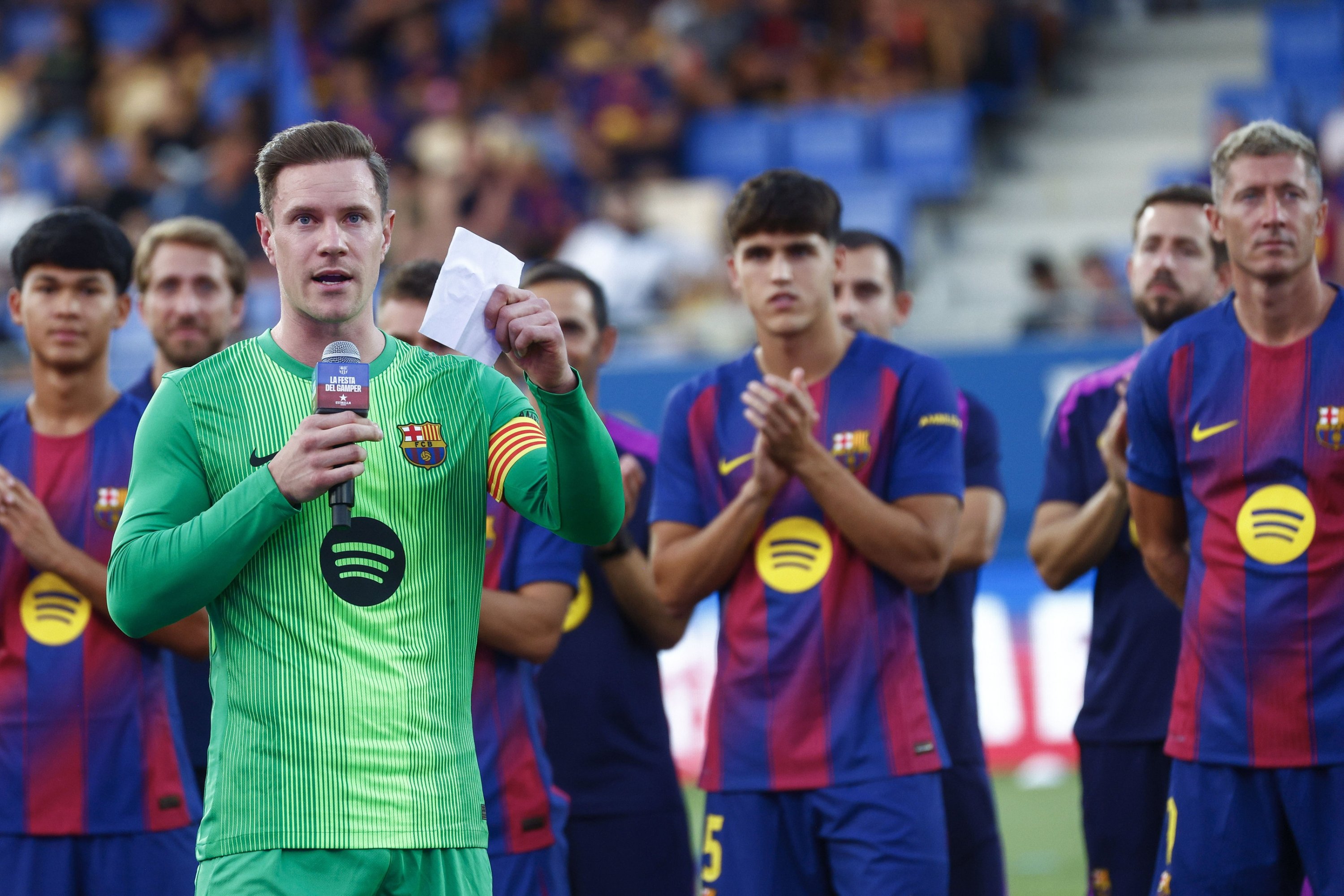
On Friday, Barcelona announced Ter Stegen had authorized the club to send his medical report to La Liga, closing the disciplinary case and restoring him immediately as first-team captain.
Ter Stegen addressed the fans before kickoff, saying, “I think it was important to resolve the issue between the club and me. Now, it’s time to look forward. We’re going to fight again for all the trophies, and we hope with your help we can win every title possible.”
The German wall also took to social media to clarify his side, rejecting “completely unfounded” claims about his surgery and recovery timeline. “The decision to undergo surgery was made after consultation with medical professionals and fully approved by the club,” he said. “I publicly shared the estimated three-month recovery period, coordinated with the club. My priority has always been to return to the field as soon as possible and help the team.”
The goalkeeper emphasized his disappointment at suggestions he delayed registrations to benefit other teammates, calling those interpretations “unfair and inaccurate.”
Ter Stegen has deep ties to Barcelona, having missed most of last season due to a ruptured tendon in his knee and subsequent back surgery.
His replacements last term included veteran Wojciech Szczesny and Inaki Pena.
Barcelona also reinforced its goalkeeping squad with Espanyol’s Joan Garcia this summer.
After returning from a preseason tour in Asia, the team aims to carry momentum into the league opener. With the Camp Nou’s long-awaited modernization still pending, the Johan Cruyff Stadium remains their temporary home for training and select matches.
Sports
Tributes pour in for ‘Palestinian Pele’ killed amid Gaza strike
Known as the “Pele” of Palestinian football, Suleiman al-Obeid dreamed of scoring goals well into his 50s.
But that dream was tragically cut short last week when an Israeli tank shell struck as he waited in line for food in southern Gaza, killing the revered 41-year-old striker, his family said.
Obeid’s widow, Doaa al-Obeid, now holds onto the blue-and-white No. 10 shorts he wore for his Gaza club, Al-Shati – one of the few cherished mementos left of her late husband as she and their five children grieve his loss.
“This is the most precious thing he left behind,” she said.
With their home destroyed in earlier bombardments, the family now lives in a tent amid the rubble of a Gaza City neighborhood, clinging to memories amid devastation.
Obeid, likened by fans to Brazilian great Pele for his skills and goalscoring, hit headlines last week after Liverpool forward Mohamed Salah criticized a tribute to Obeid by Europe’s governing body UEFA that did not mention the cause of death.
“Can you tell us how he died, where, and why?” wrote Salah.
The Palestinian Football Association said Obeid was killed in an attack by the Israeli military in southern Gaza while waiting to collect aid at a distribution point.
His family said it was a tank shell that killed him.
Responding to Salah’s post on X, Israeli military spokesperson Nadav Shoshani said: “Hey Mohamed, after an initial review, we found no records of any incidents involving Suleiman al-Obeid. In order to take a closer look, we need more details.”
Obeid, who had played for the Palestinian national team, was still playing for his club in Gaza when the war began in October 2023.
The war began following Hamas’ incursion into southern Israel, killing more than 1,200 people.
Israel, in response, has laid waste to the Gaza Strip, a coastal enclave housing more than 2 million people, killing some 61,000 Palestinians.
Most have been killed by airstrikes, artillery and gunfire, but a growing number are starving to death.
‘This player was a gazelle’
Obeid kept playing throughout the hardship, his widow, Doaa, said.
“He used to go training every day and never stopped, not a single day. Even during the crisis of war, in the midst of rockets, shelling and mass killing, he would go play. He used to gather his friends and loved ones and go play with them,” she said.
The Palestinian Football Association says hundreds of athletes and sports officials are among those killed by Israel’s assault, with most sports facilities now destroyed.
Palestinian football fans say they will focus not on Obeid’s violent death but his legacy.
“Children called him the Henry and Pele of Palestine,” said Hassan al-Balawi, a barber in Gaza City, comparing him also with the French great Thierry Henry.
“This player was a gazelle – when we stepped onto the pitch, we enjoyed watching him. All Palestinian football fans enjoyed Captain Suleiman al-Obeid.”
Sports
Fenerbahçe face do-or-die UCL night against Feyenoord in Kadıköy
Jose Mourinho has built a career on thriving under pressure.
On Tuesday night in Kadıköy, he faces another high-wire act: overturning a narrow first-leg deficit against Feyenoord to keep Fenerbahce’s Champions League hopes alive.
The third-round qualifier sits finely poised after last week’s 2-1 defeat in Rotterdam – a night that swung twice in the closing minutes.
Quinten Timber’s first-half strike was cancelled out in the 86th by Sofyan Amrabat, only for Anis Hadj Moussa to restore Feyenoord’s lead deep into stoppage time.
That gut punch left the Dutch side just 90 minutes away from a playoff showdown with Nice or Benfica.
For Fenerbahce, this is familiar and dangerous territory.
Last season, they lost by the same 2-1 scoreline to Lille in this stage before bowing out 3-2 on aggregate.
Their failure to catch Galatasaray in the Süper Lig title race, finishing 11 points adrift, meant another year without a direct ticket to the group stage.
Home comforts and European pedigree
If there’s a silver lining for Mourinho’s men, it’s the fortress they’ve built in Kadıköy.
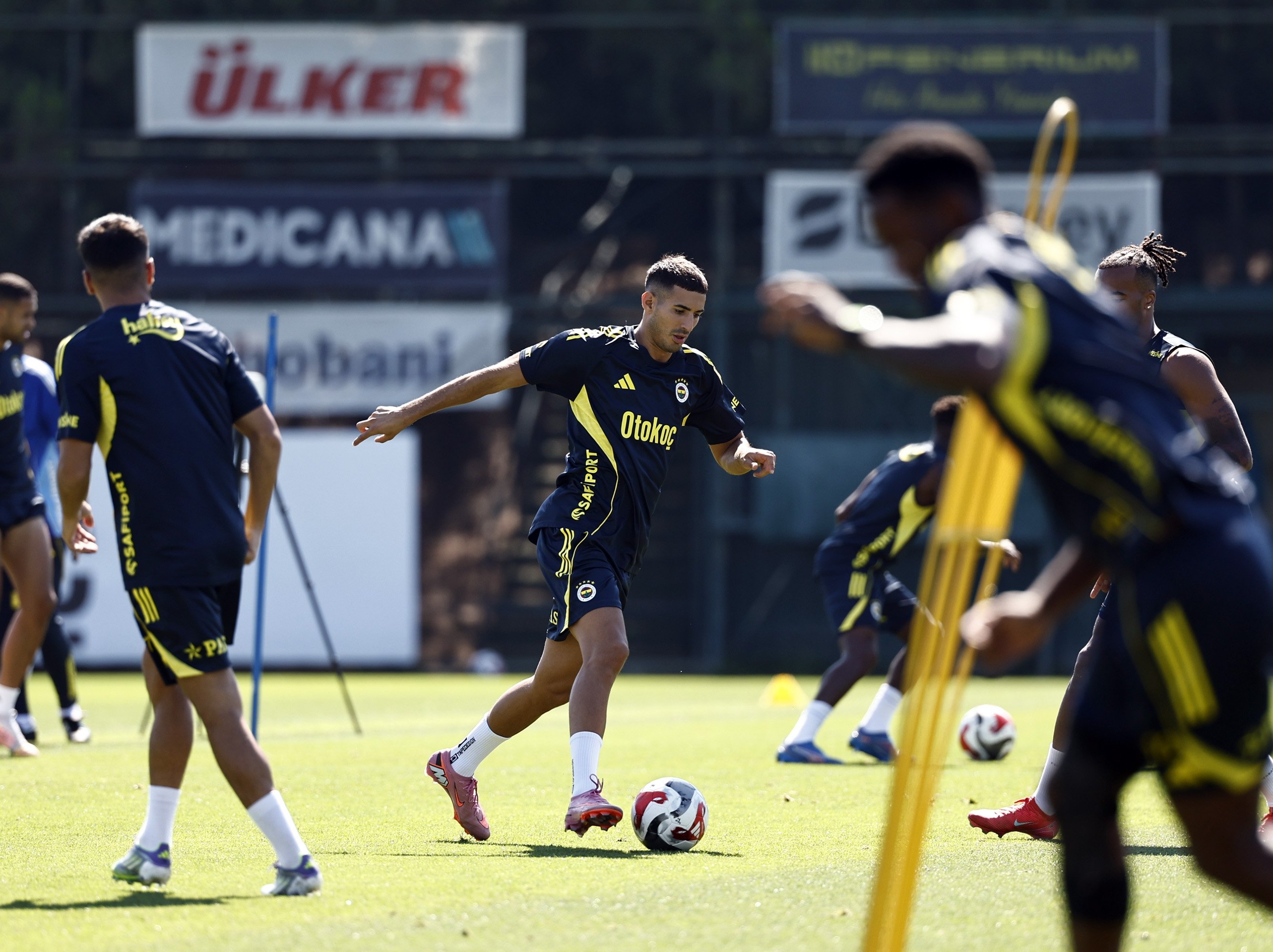
The Yellow Canaries are unbeaten in their last five Champions League home matches and have posted 15 wins, four draws, and four losses in their past 23 European home games, finding the net 50 times and conceding just 21.
Their European home history stretches deep: since their first continental match in 1959, a 1-1 draw with Hungary’s Csepel, Fenerbahce have played 142 home games in Europe, winning 73, drawing 31, and losing 38, with 207 goals scored and 136 conceded.
Since a crushing extra-time loss to Dynamo Kyiv in the 2022 qualifiers, Fenerbahce have scalped opponents like Sevilla, Olympiakos, Dinamo Kyiv, Austria Wien, Twente, Maribor, Anderlecht and AEK Larnaca.
Even when falling short in knockout stages, as against Sevilla in 2023 or Rangers last season, Kadıköy has often given them a lifeline.
Club in transition
Mourinho, who has two Champions League titles on his resume, was brought in partly to turn these knife-edge European nights in Fenerbahce’s favor.
His tenure follows Jorge Jesus and İsmail Kartal, both of whom took the club deep in continental competition but fell short of major silverware.
The weekend postponement of their league opener against Alanyaspor has given Mourinho rare breathing room in a packed summer schedule.
Still, he must navigate absences: Rodrigo Becao (ACL) is sidelined, and Diego Carlos, Cengiz Ünder and Emre Mor were not registered for the qualifiers.
Captain Milan Skriniar anchors the back line, while Nelson Semedo and Jhon Duran are in contention to start after substitute roles in Rotterdam.
Feyenoord’s frailties on the road
Across the touchline, Feyenoord manager Robin van Persie brings an iconic name but a patched-up defence. Four centre-backs – Thomas Beelen, Gernot Trauner, Jeremy Mitchell and Antef Tsoungui are out, along with left-back Gijs Smal.
That leaves new signings Anel Ahmedhodzic and Tsuyoshi Watanabe to handle the cauldron of Kadıköy.
The Dutch side finished third in last season’s Eredivisie and have carried strong early-season form into this tie, beating NAC Breda 2-0 over the weekend thanks to Sem Steijn’s free kick and Ayase Ueda’s strike.
Yet their Champions League away record is sobering: no wins in their last four road matches in the competition and no away clean sheet since 2002, against Newcastle United.
Their last trip to Kadıköy, in the 2016 Europa League, ended in a 1-0 loss to Emmanuel Emenike’s goal – a scoreline that this time would only be enough to force penalties.
For Mourinho, this isn’t just about surviving another qualifier; it’s about reasserting his reputation on Europe’s grandest stage. For Fenerbahce’s faithful, it’s about proving that Kadıköy remains a place where visiting dreams are extinguished – and where their own can burn brighter into September.
Sports
Premier League champs Liverpool rearm for tough repeat act
Liverpool have invested about 260 million pounds ($348.56 million) in new signings in a bid to turn last season’s Premier League title into the start of a new era of dominance in English football.
The post-Juergen Klopp era began with Dutchman Arne Slot’s side wrestling control from Manchester City and turning the title race into a procession as their rivals imploded.
Winning back-to-back titles for the first time since 1984 is likely to prove a rather more arduous challenge.
Premier League clubs have already splurged in excess of 2 billion pounds, with the likes of Arsenal, City and Chelsea all flexing their muscles with statement signings.
Manchester United and Tottenham Hotspur will surely improve drastically on woeful domestic campaigns last season, while the likes of Aston Villa and Newcastle United will again be making themselves heard at the top table.
While Liverpool won’t care, last season’s Premier League campaign was not a vintage edition, with the title sewn up early, the relegation victims all too predictable and the main interest being the jostle for European qualification.
Hopes are high that the new season will offer more intrigue.
It will be a somber occasion as Liverpool and Bournemouth kick off a 380-match Premier League slog on Friday with the Anfield faithful remembering Diogo Jota, the club’s Portugal forward who died alongside his brother in a car crash in July.
While Jota will forever have a place in the hearts of the Kop, new heroes are ready to emerge, none more so than German midfielder Florian Wirtz and French forward Hugo Ekitike.
Liverpool smashed their transfer record when they paid Bayer Leverkusen an initial 100 million pounds to sign the 22-year-old Germany international, who scored 57 goals and provided 65 assists in 197 appearances for the Bundesliga club.
Allied with the pace and power of 23-year-old Ekitike, signed from Eintracht Frankfurt for an initial 69 million pounds, Liverpool will have more cutting edge this season.
They have also upgraded in defence with highly-rated left back Milos Kerkez set to challenge Andy Robertson and Jeremie Frimpong to fill the hole left by the departure of Trent Alexander-Arnold to Real Madrid.
“I think there’s always room for improvement in every department,” Slot said after Liverpool beat Athletic Bilbao 3-2 in a pre-season friendly. “We’ve added a few extra weapons.”
The Dutchman was also quick to point out that Liverpool’s rivals have not “stood still,” especially Arsenal and City.
Under Mikel Arteta, Arsenal have been agonisingly close to a first Premier League title since 2004, twice pushing Manchester City hard and last season emerging as Liverpool’s sole rivals before falling away.
Fans have long lamented the lack of a genuine goal poacher, but their prayers may have been answered with the signing of Sweden’s Viktor Gyokeres from Sporting as part of a near 200 million pounds outlay in the close season.
The 27-year-old scored 54 goals in all competitions last season and should he come anywhere near the level of club record scorer Thierry Henry, whose number 14 shirt he will wear, the 63.5 million euros ($73.93 million) fee will seem a bargain.
Defensive midfielder Martin Zubimendi arrived from Real Sociedad, while Noni Madueke made the short trip across London from Chelsea to offer attacking support to Bukayo Saka.
While Arsenal, who visit Manchester United in their opener next Sunday, trailed by 10 points behind Liverpool last term, City were 13 points adrift as their stranglehold ended.
Pep Guardiola’s rebuilding job began last season and with talisman Kevin de Bruyne gone, that has accelerated with the signings of Dutch midfielder Tijjani Reijnders, Wolverhampton Wanderers left back Rayan Ait-Nouri and winger Rayan Cherki.
City visit Wolves in the late game next Saturday.
Fresh from winning the Club World Cup, Chelsea will also be expected to mount a challenge with striker Joao Pedro their standout signing of another busy transfer window. The Blues start their season at home to Crystal Palace next Sunday.
Former Brentford manager Thomas Frank takes charge of a Spurs team that finished 17th but won the Europa League under Ange Postecoglou and are back in the Champions League without talisman Son Heung-min, who ended his 10-year stint this week.
Quite what the Dane will make of the jigsaw puzzle he has inherited from the sacked Postecoglou is anyone’s guess, but fans will expect to see a vast domestic improvement as they get underway at home to promoted Burnley next Saturday.
Likewise, at Manchester United, where Ruben Amorim begins his first full season in charge with the pain of their worst league campaign since 1974 still painfully fresh.
For Daniel Farke, Scott Parker and Regis Le Bris – managers of promoted trio Leeds United, Burnley and Sunderland – the brief is simple – survival.
The omens are not good with the last six teams to gain promotion to the top flight going straight back down.
Leeds open their campaign at home to Everton two days after Sunderland welcome West Ham United next Saturday.
Sports
S. Korea star Son makes instant impact in MLS debut with LAFC
South Korea star Son Heung-min made his Major League Soccer debut Saturday, coming off the bench to spark Los Angeles FC in a 2-2 draw against the Chicago Fire.
Son was brought down for a penalty in the 77th minute that Denis Bouanga converted to clinch a draw in the 81st minute – VAR confirming the spot-kick after the referee had allowed play to continue.
“It was a great pass. Obviously it was definitely contact and it was definitely a penalty, I have no doubt about it,” said Son, who was sent sprawling by Carlos Teran after racing on to a through ball with the goal in his sights.
“A bit disappointed not getting three points, but I think everybody put in a lot of effort. (I’m) happy I made my debut and I hope the goals come soon.”
The former Tottenham captain also had a string of shots on goal, including one blocked in second-half injury time.
Son signed with LAFC on Wednesday for a reported MLS record $26, after a decade with Premier League club Spurs, where he became a household name.
The South Korea captain had announced the previous Saturday in his homeland that he would be leaving the north London club and departed as Tottenham’s fifth-highest goalscorer of all time with 173 goals in 454 appearances.
Son will not get a chance to play in front of home fans in Los Angeles until Aug. 31, when Western Conference leaders San Diego will be the visitors.
But around the Fire’s SeatGeek Stadium, there were a lot of fans wearing his jerseys, waving South Korean flags and holding up signs welcoming Son to MLS.
Cheers greeted his entry in place of David Martinez in the 61st minute with the teams level at 1-1.
Jonathan Bamba put Chicago 2-1 ahead in the 70th minute and were pressing again when Brian Gutierrez’s shot bounced off the post and LAFC seized the rebound.
Nathan Ordaz played the ball forward for Son to race away. He had a first MLS goal in his sights when he was brought down.
The penalty allowed LAFC to level for a second time.
Carlos Teran had opened the scoring for the Fire in the 11th minute with a header from a corner.
Eight minutes later, Ryan Hollingshead nodded in to make it 1-1.
Son had said at his introductory press conference – attended by luminaries including Los Angeles mayor Karen Bass – that he felt fighting fit and wanted to get on the pitch “as soon as possible.”
He will have his next chance when LAFC, who moved up a spot to fifth in the Western Conference, visit the New England Revolution next Saturday.
“It was a decent 30 minutes in my legs, so, yeah, getting ready for next week,” Son said.
“So we’ll see how I progress with the training sessions and with the players and we’ll see (if) next week I can start the game and make a big impact.”
Sports
‘Tell us how he died’: Salah slams UEFA’s ‘Palestinian Pele’ tribute
Liverpool’s Egyptian star forward Mohamed Salah on Saturday accused UEFA of omitting key details about the Israeli killing of Suleiman al-Obeid, the “Palestinian Pele,” in its tribute to the late footballer.
The Palestine Football Association (PFA) said that al-Obeid, 41, was killed by an Israeli strike targeting civilians waiting for humanitarian aid in the southern Gaza Strip on Wednesday.
In a brief post on the social media platform X, UEFA called the former national team member “a talent who gave hope to countless children, even in the darkest of times.”
Salah responded: “Can you tell us how he died, where, and why?”
UEFA was not immediately available to comment.
One of the Premier League’s biggest stars, the 33-year-old Egyptian Salah, has previously advocated for humanitarian aid to be allowed into Gaza in the nearly two-year war.
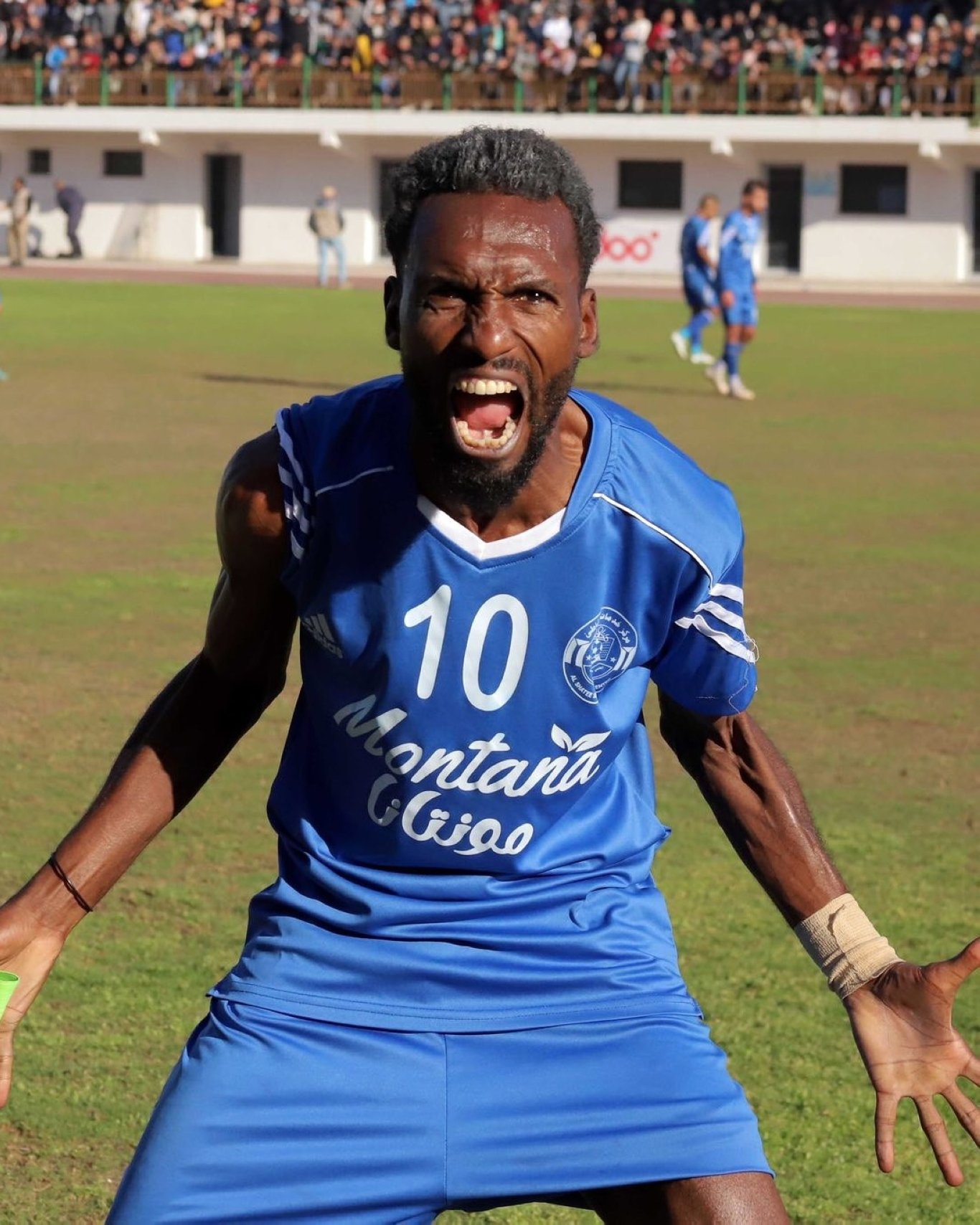
The PFA later posted a statement on its Facebook page attributed to UEFA President Aleksander Ceferin, calling al-Obeid “proof of the joy that can flourish in the hearts of people despite hardship.”
“He gave his talent and dedication to the children of Gaza and gave their dreams a hope to blossom despite the suffering,” the statement read.
“His death is a great loss to the world of football and to everyone who recognises the power of sport to unite people.”
The PFA said on Saturday that 325 players, coaches, administrators, referees and club board members in the Palestinian football community have died in Israel’s genocidal war on Gaza since October 2023.
The war was triggered by the Hamas incursion of southern Israel on Oct. 7, 2023, causing around 1,200 deaths and taking more than 250 hostages, according to Israeli authorities.
Israel’s genocidal war, in comparison, has killed over 61,300 people, the local Health Ministry says. The war also leveled entire neighborhoods in Gaza, displaced most of the population of 2.3 million and pushed the enclave to the brink of famine, according to the United Nations.
The U.N. says more than 1,000 people have been killed near aid distribution sites and aid convoys in Gaza since the launch of the Gaza Humanitarian Foundation, a U.S. and Israel-backed aid distribution system, in late May.
-
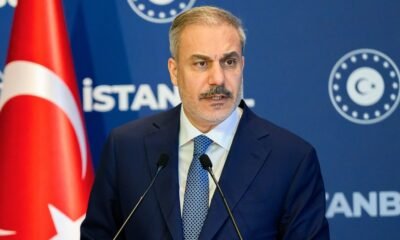
 Politics2 days ago
Politics2 days agoTurkish FM Fidan to visit Egypt to discuss Israel’s Gaza plan
-

 Politics3 days ago
Politics3 days agoTürkiye urges int’l pressure to stop Israel’s Gaza plan
-

 Politics3 days ago
Politics3 days agoGreek Cypriot biker protest halts Lefkoşa border crossings
-
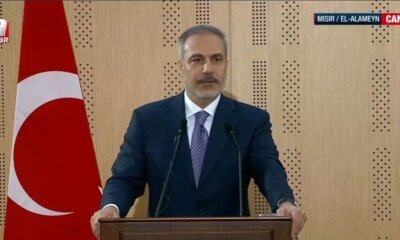
 Daily Agenda2 days ago
Daily Agenda2 days agoForeign Minister Fidan: Israel persistently sabotes cease -fire initiatives
-
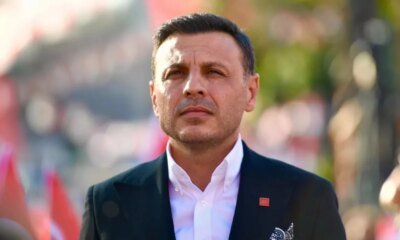
 Daily Agenda2 days ago
Daily Agenda2 days agoLawyer Mehmet Yıldırım and CHP Provincial Chairman Özgür Çelik Came Out
-
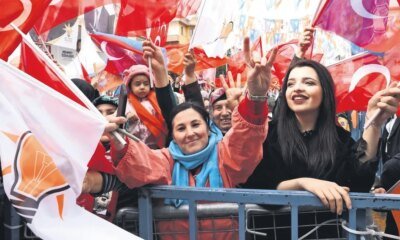
 Daily Agenda2 days ago
Daily Agenda2 days ago2 in Istanbul, 4 points in front of the CHP in front of Türkiye
-
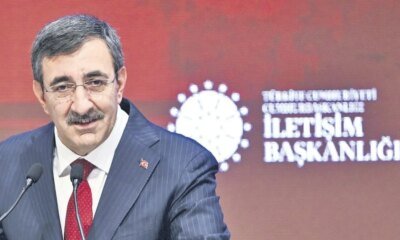
 Daily Agenda2 days ago
Daily Agenda2 days agoVice President Yılmaz: To create a chaos environment for their purpose
-
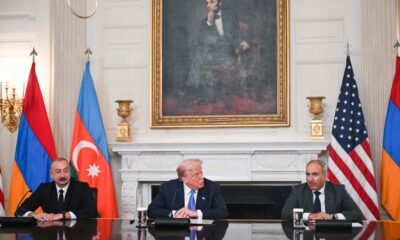
 Politics3 days ago
Politics3 days agoArmenia, Azerbaijan agree to groundbreaking peace agreement




